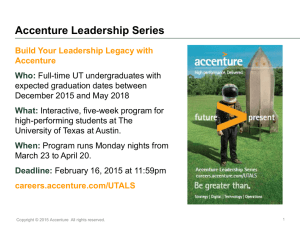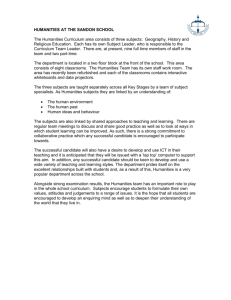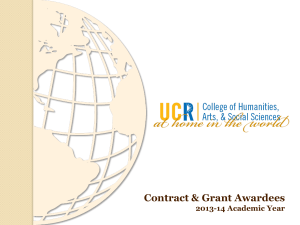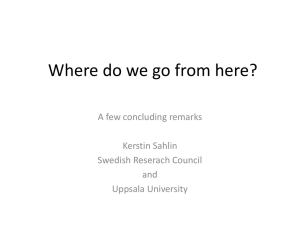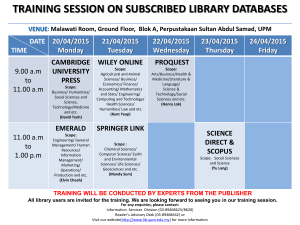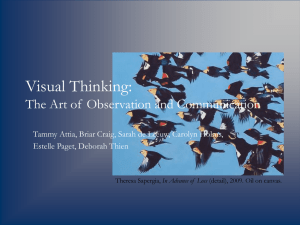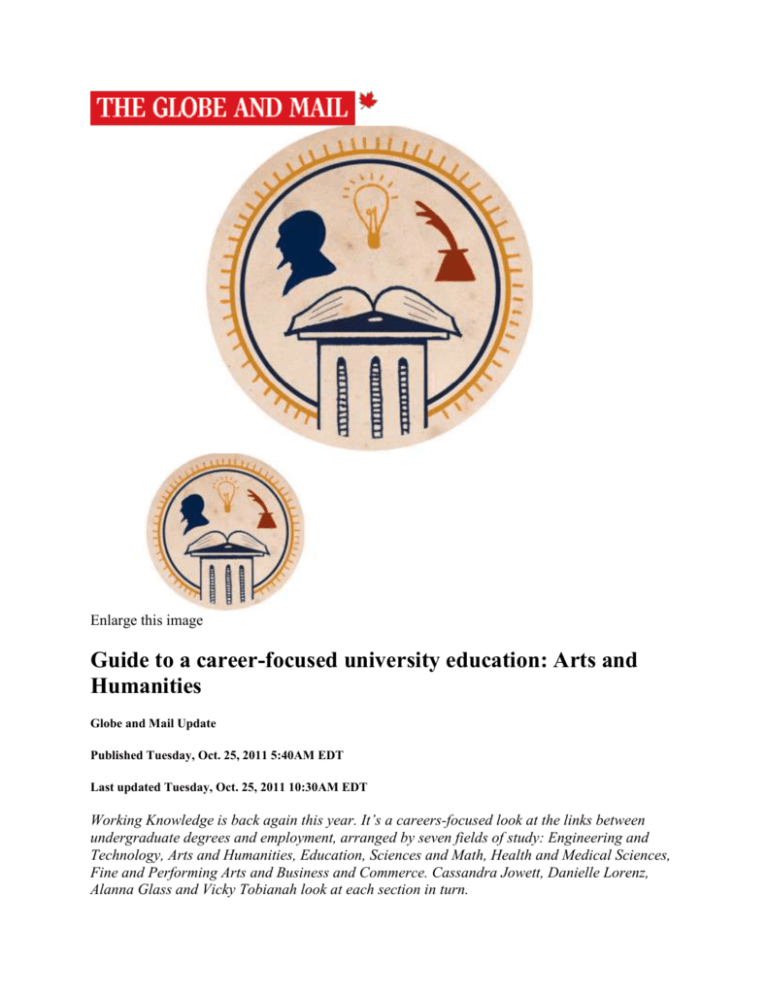
Enlarge this image
Guide to a career-focused university education: Arts and
Humanities
Globe and Mail Update
Published Tuesday, Oct. 25, 2011 5:40AM EDT
Last updated Tuesday, Oct. 25, 2011 10:30AM EDT
Working Knowledge is back again this year. It’s a careers-focused look at the links between
undergraduate degrees and employment, arranged by seven fields of study: Engineering and
Technology, Arts and Humanities, Education, Sciences and Math, Health and Medical Sciences,
Fine and Performing Arts and Business and Commerce. Cassandra Jowett, Danielle Lorenz,
Alanna Glass and Vicky Tobianah look at each section in turn.
Arts and humanities degrees may not seem like the most practical degree to get—especially with
the rising cost of tuition and the increase in youth unemployment. But it’s actually one of the
best career moves a student can make. That’s because arts and humanities usually produce wellrounded individuals, and employers know how crucial those types of people can be to the
success of an organization. Arts and humanities graduates often excel at critical analysis,
problem solving, teamwork and effective communication—all attributes that are vital to
companies seeking to redefine themselves in struggling times. In 2011, the average wage for
someone working in government and social sciences was $57,135, but much of that depends on
location, education level and work experience. Entry-level wages for volunteer managers—a key
position in many NGOs and not-for-profit organizations—is between $20,000 and $40,000
although those can eventually rise to $60,000. Other possible career opportunities include
industrial organizational psychologist, curator, insurance underwriter, criminal intelligence
analyst, principal researcher, interpreter, public policy analyst, translator, cartographer, conflict
management practitioner and historian.
What Employers Want
NANCY MOULDAY
Manager,
TD Business Banking
In TD Business Banking, we have an 8-10 month associate program, which is a combination of
in-classroom training, online learning and mentoring. I look for individuals who have an
undergraduate or a master’s level degree, but the great thing is that they don’t need a business
degree. They could have a degree in anything as long as they have taken some accounting and
finance courses. When it comes to the softer skills, I look for individuals who demonstrate great
initiative, have some customer service or sales experience, and enjoy working in a team
environment, whether their experience has been in school, work, sports or volunteer work. They
should also enjoy giving back to their school and community because one of our most important
mandates at TD is to find ways to give back to the community.
DOUG SPOONER
Human Resources Associate,
Toronto 2015 Pan/Parapan American Games
The Toronto 2015 Pan/Parapan American Games Organizing Committee hires across a broad
range of roles within our eight departments. We’re looking for high achievers with balance
across their lives. Sport participation is valued, but so are other activities such as part-time work
in a related field, the arts, clubs, tutoring, event planning, student associations. When hiring for
entry-level roles, we look for demonstrated leadership ability, strong interpersonal and
communication skills, self-motivation and the ability to be confident without being arrogant.
Arts programs you may not know about...but should:
> Industrial Relations
Focuses on the social and economic factors that impact labour management practices and
institutions.
—McGill University
> Distinct and Diverse Communities
Combines theory, practical coursework and training from three different institutions. Graduates
are well suited to careers working with indigenous communities.
—Brock University, Sault College and Anishinabek Educational Institute joint degree program
> Sport Psychology
Students learn about sport and health psychology, rehabilitation and occupational therapy, sport
research, and coaching.
—University of New Brunswick, Laurentian University, Acadia University
> Music Cognition
This specialization within the Department of Psychology, Neuroscience and Behaviour allows
students to understand how the brain processes music and how this can affect cognitive
development.
—McMaster University
> Knowledge Integration
This program is for those unique individuals who can’t be categorized—they’re artists and
scientists. In their third year, students design a museum exhibit.
—University of Waterloo
> Communication, Culture and Information Technology, Digital Enterprise Management
Specialization
This joint honours bachelor’s degree and college certificate specialization encourages students to
develop a portfolio that might include websites, short films, advertisements and games.
—University of Toronto at Mississauga and Sheridan College joint degree program
> Geographic Analysis
Using a variety of tools, students learn to assess and analyze different geographic issues.
Geographic Analysis students get a global perspective through annual field trips in each of the
first three years of the program. The first year trip examines the urban, rural, agricultural,
tourism and environmental aspects of the Niagara peninsula, while the third year trip allows
students to either stay in Canada or spend a week
in the Caribbean, the United States
or Europe.
—Ryerson University
> Circumpolar Studies
Taking courses offered through Yukon College and several Canadian universities, students learn
about a host of circumpolar issues.
—University of the Arctic/Yukon College
From class to career
REBECCA KASTER
Analyst,
Accenture
Bachelor of Arts in Arts and Business,
University of Waterloo, 2011
As an arts graduate working in a technology-driven company, Accenture analyst Rebecca Kaster
knows a thing or two about landing the right job. Kaster joined the global consulting firm in
February after earning a degree at the University of Waterloo for German language and
international business. She now uses these specialties on an Ontario public service IT
infrastructure project she’s working on where the vendor is a German company. Although only
23, Kaster has already travelled to Germany and Paris for business. “You can pick a new project,
a new industry, and as long as you have the soft skills, you can pick up the knowledge and run
with it,” said Kaster. “At Accenture, I’m impressed with how open people are.” Before joining
Accenture, Kaster completed several co-op placements including positions at a major Canadian
technology firm, and in finance and process engineering at a major Canadian bank.
VICTOR MA
Financial Advisor,
Sun Life Financial
Bachelor of Arts in Psychology,
University of British Columbia, 2010
As Victor Ma, 24, sees it, a degree in arts and humanities can take you many places—even
finance. After completing his degree, Ma moved to his current job as a financial advisor with
Sun Life Financial in Burnaby, British Columbia. “The goal when going into my psychology
major in university was to give myself the opportunity to help others; this job gives me that,”
says Ma. Every day, Ma helps Sun Life Financial clients navigate through the complex and often
confusing world of finance. “As a financial advisor at Sun Life Financial, I feel like I make a
difference by giving myself the opportunity to help people every day, which lucky for me, is my
job,” he says.
Working Knowledge has been created in partnership with TalentEgg, Canada’s leading job site
and career resource for students and new graduates. TalentEgg features co-op, internship,
summer and entry-level job postings from some of Canada’s top employers, plus industry guides
and career tips in its online magazine, the Career Incubator. Find out more at
www.talentegg.ca.
© 2011 The Globe and Mail Inc. All Rights Reserved.

